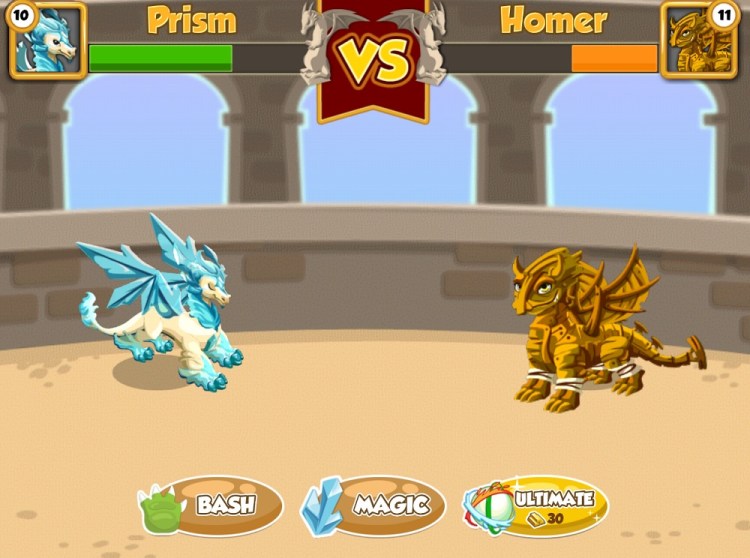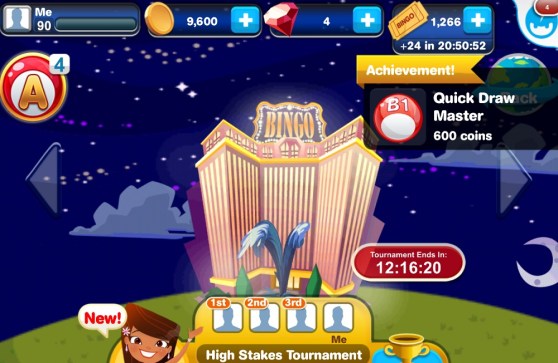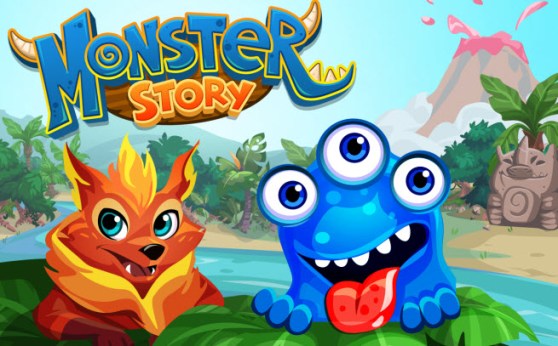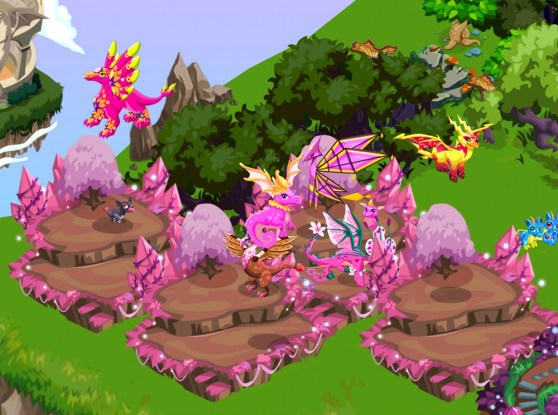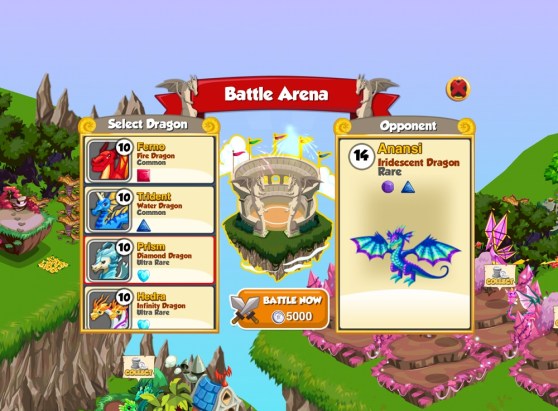Storm8 has more than 40 mobile games, 250 employees, and 50 million monthly active players. But it’s still considered a bit of a small fry and an unknown brand among the familiar mobile game industry leaders like King, GungHo Entertainment, and Supercell.
Over time, Storm8 wants to move up in the ranks and become a household name in mobile games.
That’s one of the reasons it brought aboard Terence Fung, a former vice president of corporate development at Zynga, as its chief strategy officer. Fung did more than 35 deals related to partnerships, investments, and acquisitions at Zynga during his 4.5-year stint there.
By comparison, Storm8 has been remarkably quiet. The Redwood City, Calif.-based game publisher was entirely bootstrapped by CEO Perry Tam and his cofounders. At Storm8, Fung said in an interview with GamesBeat that he isn’t about to sell the company or go on a buying spree. But he is weighing all options for corporate strategy, and you can bet that the company will be more active in making its games stand out on the mobile charts.
Here’s an edited transcript of our interview with Fung.
GamesBeat: Can you talk about your experience at Zynga and why you decided to leave after all those years there?
Terence Fung: Zynga is an amazing company with a great deal of positive momentum. My decision to leave was less about Zynga and more about the same path that got me to Storm8. I joined Zynga four and a half years ago and saw the organization grow from 400 to 3,500, scaling past 1,000 people, having one of the largest IPOs for a U.S. web company. Don came in at the right time. I have confidence that he’s going to take Zynga to the next stage as far as better positioning the company in mobile. You see the early traction in FarmVille Country Express.
As far as Storm8, I’ve admired Storm8 from afar. I’ve known Perry for several years now. He’s a great leader. I have a lot of respect for him. Storm8 is one of the pioneering leaders in free-to-play mobile social games. It’s emerged at the top of the pack, on the basis of execution. It’s one thing to identify the early trends and go after them. It’s another thing to execute. Of all the major independent mobile games companies that are left in the space, Storm8 is at the top of the pack right now. You see the massive scale and reach of the network, more than 50 million monthly active users.
As I’ve spent more time at Storm8, I’ve been more excited about the network of users. Storm8 gamers who play more than two games in our network have an LTV that’s at least four times that of those who only play one game. That speaks to Storm8’s deep understanding of gamers and the focus on the network. We work to leverage our understanding of users to serve up the most appropriate content for them.
In 2013 the company was a top 12 mobile publisher based on revenue, including both games and non-games companies. Of those companies, Storm8 was the only one that’s never raised any significant outside funding.
So I’ve been excited to join up. It’s a great foundation for continued success. I see four key factors — scale, team talent, technology, and game genre diversity.
GamesBeat: It seemed like the fun part of being at Zynga for a person like you was that you got to buy or invest in a lot of companies. The simple interpretation might be that Storm8 wants to go do that as well. Is that part of the reason why it has brought you on board, or are you getting into other things now?
Fung: Acquiring companies wasn’t among the top things that we discussed in my meetings with Perry. Storm8 is open to evaluating all opportunities in the market, but right now we don’t have any news to share on acquisitions. My background has been around understanding market innovation, disruption, and scaling organizations. I came to San Francisco during the tech boom of 1999, working across a broad variety of companies on the banking side. I have a familiarity with startups and scaled companies.
As far as what I’m focusing on as chief strategy officer, it’s helping take Storm8 to the next level. The opportunity is clear in market leaders like Gung Ho, Supercell, and King, showing us what a single game can do. For Storm8 in particular, I’m helping the company refine its strategic planning and priorities. We want to continue making quick decisions, confronting the challenges and opportunities in an amazing market that some studies show will grow two or three times over the next several years.
We’re accelerating our partnership efforts, working with more third parties – whether it’s developers, brands, or others interested in leveraging the mobile audience of 50 million MAU – and helping prioritize the many unique geographic opportunities in markets like China, Japan, and Korea. These are very unique, large market opportunities with interesting app store characteristics, messaging companies. We’re also expanding our reach in existing genres, because I believe that whatever Storm8 is doing, we can achieve multiples of growth within our existing genres, as well as growing into new game genres.
GamesBeat: Looking back on the history of the industry, there’s been this mixture of grow-slow and grow-fast companies out there. The fact that Storm8 didn’t raise money put it into the category of companies that grew slower than they could have. What do you think about that mixture of companies?
Fung: I don’t think capital necessarily translates to growth. It certainly is correlated in different industries. There was capital raised by certain companies to focus on things where they believed the LTV was high enough to spend on user acquisition. That strategy makes sense. It can pay off for certain types of companies. You have to be very smart about how you’re calculating LTV and managing users over time. From a Storm8 perspective, I’d say that the company has grown very nicely. If we required additional capital on top of the cash flow we already made, we could have done so.
What you’ve seen is a deliberate growth pattern in terms of leveraging knowledge and executing in particular genres. The company started in MMORPGs. It grew into the casual side with simulation-style games. It went into arcade and casino after that, and now into the mid-core space. These are deliberate actions by the team here to go after large market opportunities and do so in a very profitable way.
I can’t name a company that has diversified a portfolio as Storm8, with the strong financial metrics as far as profitable revenue growth on a constant basis. The company has done a great job of executing so far.
GamesBeat: Storm8 seems like it follows a portfolio strategy. The companies that are dominating the top-grossing lists in mobile right now seem to be the ones that focus on a very small number of games. It’s an odd situation that way. I’m curious what you think of this portfolio versus strategy whatever you would call it, the blockbuster mentality?
Fung: Any company would want to develop game that makes $1 million or $2 million or $3 million a day. That’s a good issue to have. From a development perspective, I think all game developers need to understand what it takes to create a hit.
From what I’ve seen in the market, a lot of people end up with their backs against the wall. There are thousands of games in the market. The ability to generate that hit—I don’t think most people say they have a high probability to hit that. And of those hits, if you asked the game companies that have developed them, I don’t think many of them would say, “Yeah, I knew I was going to develop that amazing of a hit.”
We have more games in the top-grossing charts than any other mobile publisher, I think. That speaks to a company that focuses on creating strong hits. That said, the reason why I’m here is because I think the company is capable of achieving something more, of creating a top-grossing hit. We’re not telling the teams, “Hey, you’re going to go out there and create this gazillion-dollar game,” but you get the gist of what I’m saying.
GamesBeat: One of your options might have been to go help someone start a company, or start a company yourself. How do you feel about starting new companies in this stage of the mobile industry?
Fung: The big question, at least from a mobile game developer’s perspective—I often told in-house mobile game developers something that most people in the games industry understand, which is, “Don’t enter the games space expecting to make a lot of money.” It’s a tough, challenging space from a consumer perspective.
That said, it’s fun. We should love what we do, having the ability to reach thousands or millions of users. No other business has that exponential capability like mobile games, as evidenced by the Kings and the Supercells of the world.
The things that most game developers will find challenging, aside from just creating a great hit that engages and retains users. I don’t believe monetization is the trick. The key thing is figuring out how to retain users. Driving the installs is the hardest thing. One of the reasons why Storm8 is a great place to be, it’s one of the companies that, given its diversified portfolio and scale of 50 million monthly active users, has a great ability to continue driving installs. I wouldn’t say Storm8 is self-sufficient, but it’s as self-sufficient as any scaled player out there in terms of not having to spend a great amount of money on paid acquisitions to be able to drive future growth.
For any developer starting in the market, putting all the pieces together as far as funding a team, putting it together—I think Unity is great when it comes to how it’s been able to get a lot of smaller teams up and out of the gate faster. But it’s still tough to come up with a great free-to-play game that retains and monetizes. Driving the installs still seems to be one of the biggest challenges in the market.
GamesBeat: What category do you see Storm8 participating in? Is the broader casual market the best explanation?
Fung: We have a strong network of users in casual, arcade, casino. On the mid-core side—though I think that term is overused – there are ways to have mid-core players leverage the Storm8 network. Storm8 users want to play more challenging, more complex PvP and PvE-style games. The opportunities in the genres we’ve moved into are still extremely broad.
There’s a specific game for all types of users. We don’t need to be everywhere, but I think we have a good foundation to grow from.
GamesBeat: What do you see in the future of games right now?
Fung: A lot of exciting things are going on in the game space—the next generation of consoles, Oculus and so on. For Storm8, the low-hanging fruit has always been there in mobile games. The company was one of the early pioneers there. The opportunity is clear. Companies need to continue to execute. The proliferation of mobile devices is only getting bigger in emerging markets and developed markets alike.
If the company executes on just the mobile opportunities, that’s orders of magnitude in growth over what it’s doing right now. That’s what excites me the most. The opportunities in other areas of games are phenomenal for certain companies. Even PC gaming is ripe for companies like Riot. But for Storm8, we’re going to continue executing mobile. The results will end up speaking for themselves.
GamesBeat: What about the international markets? Are you looking at those with any particular strategy in mind?
Fung: Everyone is talking to everyone, I think. People are evaluating the international markets, whether it’s mobile messaging services or other platforms. I’d say that 50 percent of our users are from outside the U.S., so Storm8 already has a strong international presence. But we could always do a better job of addressing specific user cases across different geographic areas if there’s a big growth opportunity there. We don’t have anything specific to announce yet. More generally, we’re aware of the huge opportunities in Asia, and we’re looking to increase our presence there.
GamesBeat: Is the idea of staying independent something that Storm8 is very focused on?
Fung: Again, people knock on everyone’s doors. We’re open to different types of discussions. I’m not saying we’re open to selling the company. We’re not. We’re practical people, but the company is laser-focused on execution. I didn’t come here to sell the company or anything of that sort. I’m more excited about what the mobile opportunity presents for Storm8 and helping the company continue to execute.
When it comes to business development partnerships and so on, a lot of things can happen that can benefit both parties. Storm8 has this massive audience that we can leverage for different partnerships. We’re open to having all sorts of discussions if it makes sense for both parties.
GamesBeat: I know Zynga had a lot of people who liked to beat up on them. Do you come out of that experience with any particular lessons learned?
Fung: I’d say that passionate people can accomplish amazing things. It started with Mark Pincus. He has a huge passion for social games. I don’t know if you could say he created social games, but he was a clear leader in that space. He helped scale a company that was and is at the forefront of social games. My takeaway is, with that passion and talent, amazing things can come out of that.
The company continues to transition from web to mobile. It faces a lot of the obvious challenges that any of the early-stage social game companies that initially focused on the web have dealt with. Transitioning to mobile was challenging. But I’m focused on the people that were at Zynga and still are at Zynga. It’s a pretty amazing company.
GamesBeat: Is anything else capturing a lot of your time or attention these days?
Fung: I’m super excited to be at Storm8. Like I say, four things attracted me here – scale, talent, technology, and genre diversity. Everyone talks about team talent, but it’s a great corporate culture here that values and rewards hard work, that knows how to have fun. I missed the company’s five-year anniversary this spring, but they brought all the employees on an all-expenses-paid trip to Hawaii, which I’m bitter I didn’t join up in time for.
Technology-wise, they had to build most of the tech in-house at such an early stage. They’ve continued to iterate on that. They have a great full-stack technology. I see it as the best in its class. Game genre diversity, they’ve launched 40 games across iOS and Android in multiple categories. Storm8 has all the elements to continue on its trajectory.
VentureBeat's mission is to be a digital town square for technical decision-makers to gain knowledge about transformative enterprise technology and transact. Learn More
